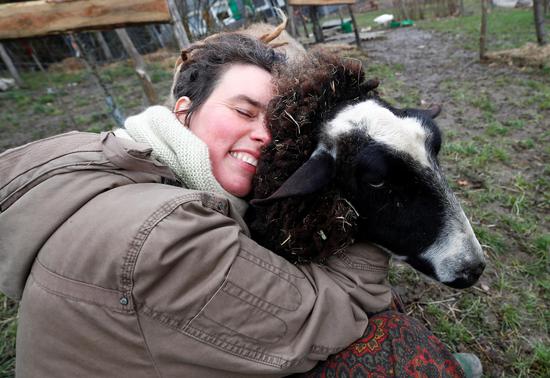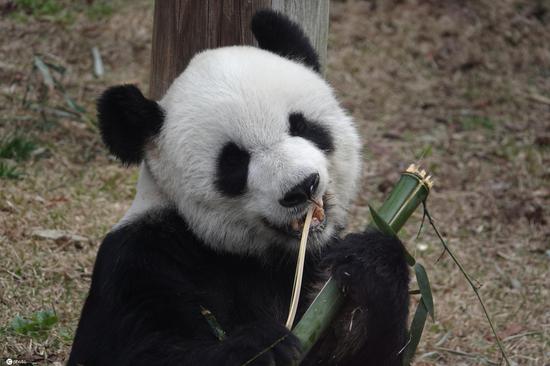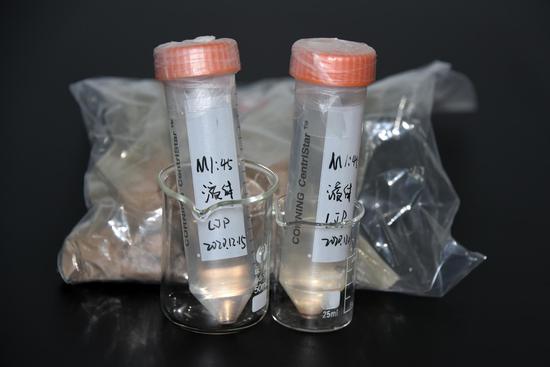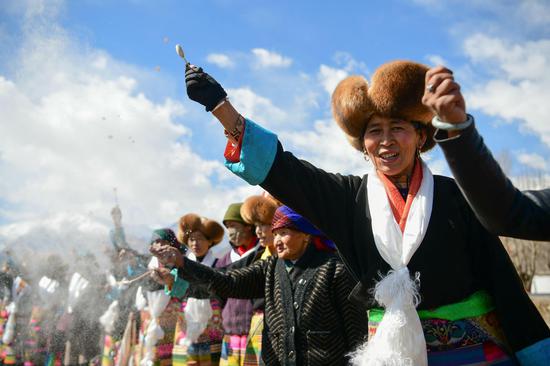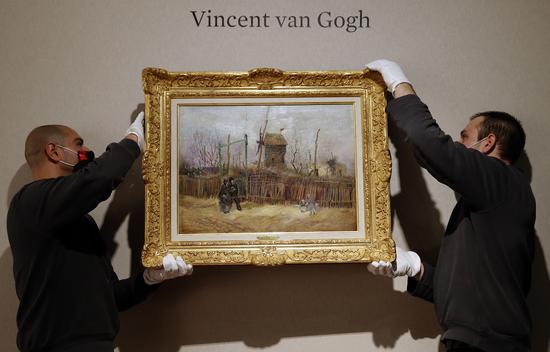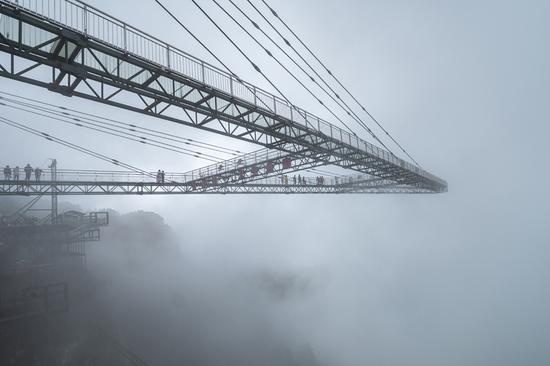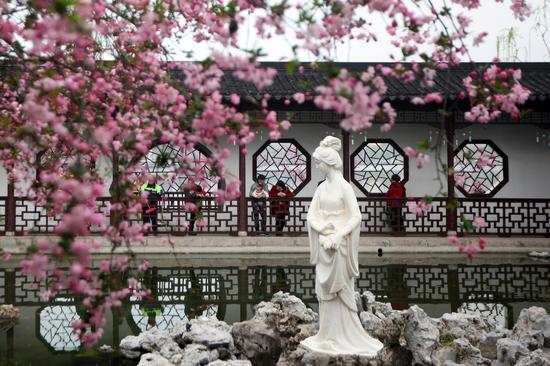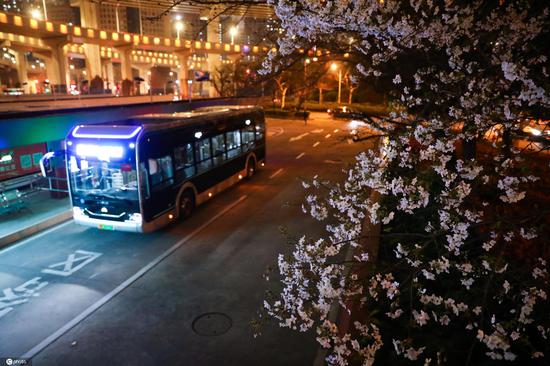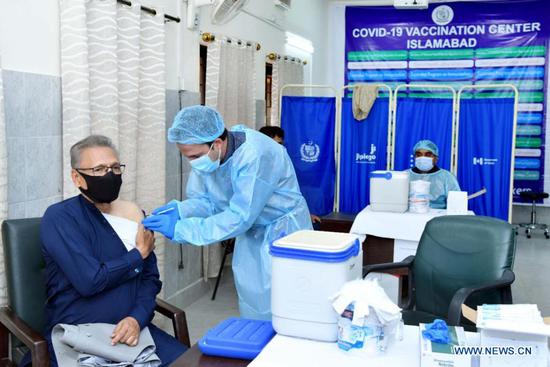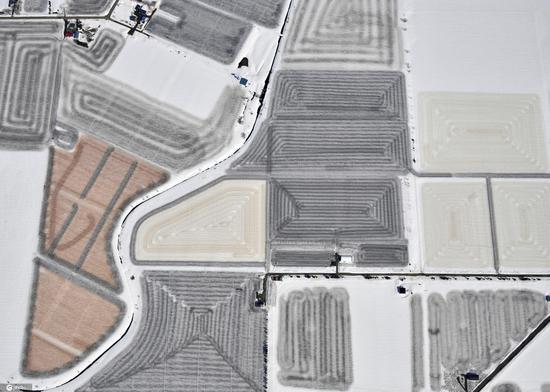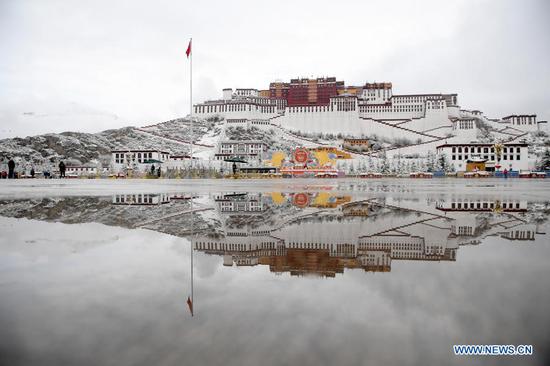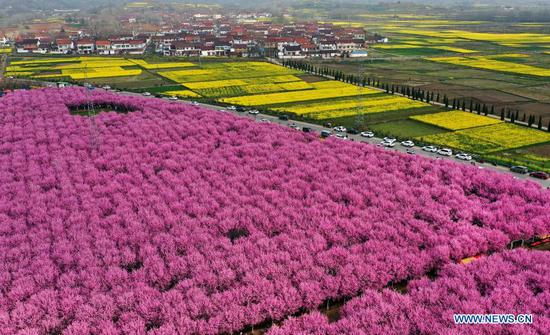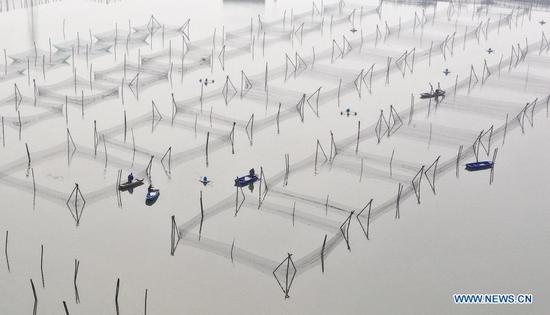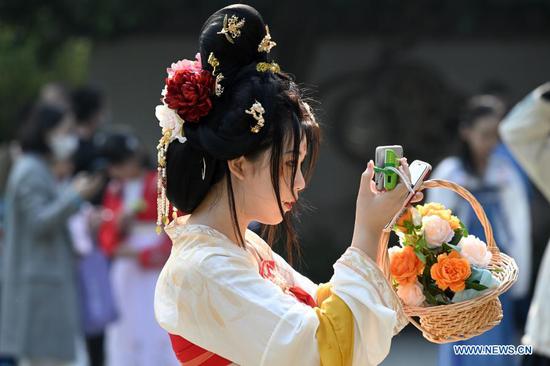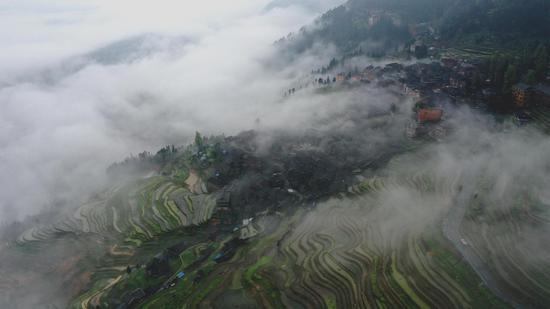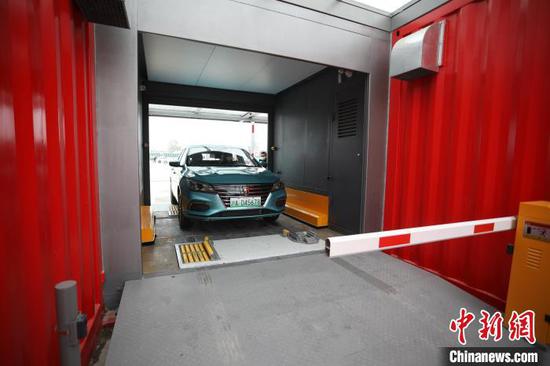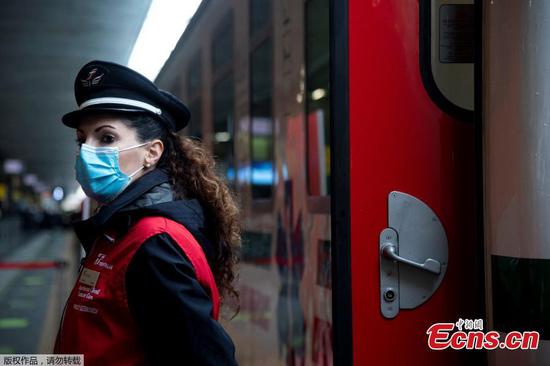In a recent paper, German author Adrian Zenz accused Chinese authorities of forcing hundreds of thousands of Uygurs to pick cotton. But local farmers dismissed the allegations on Thursday, saying the claims have caused them to suffer economic losses.
As a cotton farmer from the city of Kuqa in Aksu Prefecture, Mijit Timit owns 200,000 square meters of farmland, generating an annual income of about 150,000 yuan ($23,069).
Several years back, he hired people from either Xinjiang or other parts of China to pick cotton when his family was short-handed during the harvest season. But now, he uses machines, which he says are more efficient and cost less.
Mijit said picking cotton is a well-paid job, and that's why migrant workers go all the way to Xinjiang during the harvest season.
"We're earning money by harvesting the cotton we grow ourselves. How can you call that 'forced labor?'" said Mijit. "The cotton pickers we used to hire could earn about 10,000 yuan in two months. Many people rushed to do the work. We don't need to force them.”
Cotton picking used to be a popular job for migrant workers from other provinces, such as Henan and Sichuan, according to Xu Guixiang, deputy director of the Publicity Department of the Xinjiang Uygur Autonomous Region.
Xu said local employers would pay them high salaries and provide free meals and accommodation, adding that their rights were also guaranteed.
"These cotton pickers sign labor contracts with employers and receive legal payment in accordance with China's labor law and regulations. In recent years, the number of such cotton pickers from other provinces has decreased because the income of the rural labor force has been increasing in inland areas of China," said Xu.
He added that with the development of technology, cotton production has been highly mechanized in Xinjiang, so even in the busy harvest season, there is no need for a large number of cotton pickers.
According to officials, about 95 percent of cotton in northern Xinjiang was harvested by machines last year.
Xu said as Adrian Zenz's "forced labor" claim has caused some countries to decrease or even stop importing cotton products from Xinjiang, some local individuals and enterprises are now suing the German author for economic losses and damaging their reputation.










